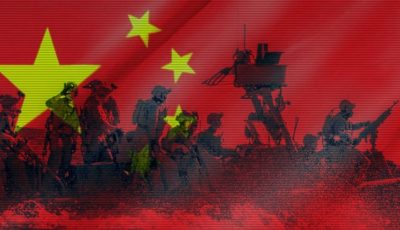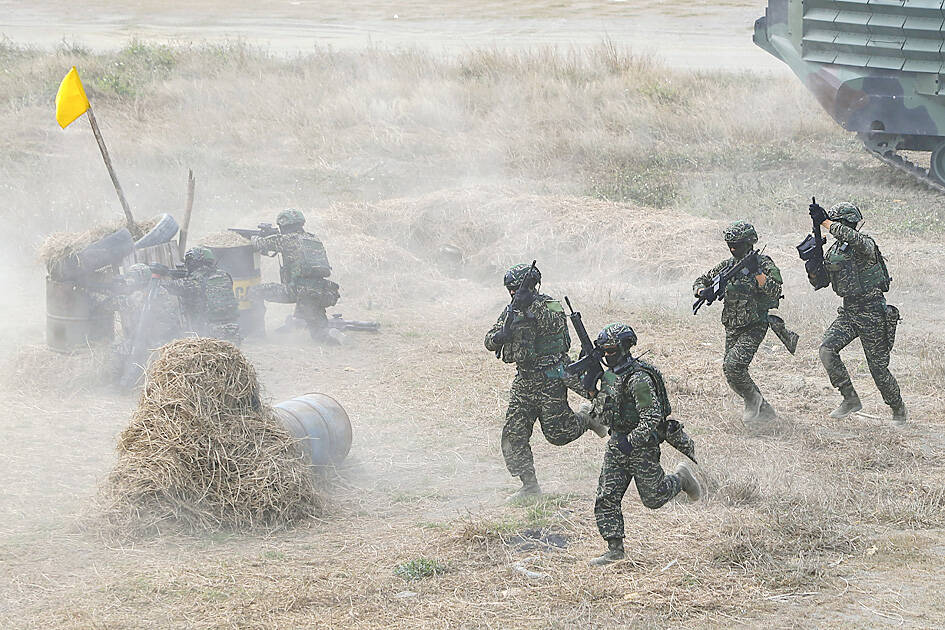Taiwan Troops Joined Michigan Drills: Report
Strategic Move: The exercises were led by the US National Guard instead of the US Armed Forces so as to not to provoke China, the ‘Sankei Shimbun’ reported

All Global Research articles can be read in 51 languages by activating the Translate Website button below the author’s name.
To receive Global Research’s Daily Newsletter (selected articles), click here.
Click the share button above to email/forward this article to your friends and colleagues. Follow us on Instagram and Twitter and subscribe to our Telegram Channel. Feel free to repost and share widely Global Research articles.
***
Taiwanese troops last month attended military exercises led by the US National Guard in Michigan, the Sankei Shimbun reported on Saturday.
More than 7,000 soldiers from several countries participated in the exercises, which were held from Aug. 5 to Aug. 19, the Japanese daily reported.
Following the joint exercises last summer, Taiwan and the US have continued to deepen military exchanges and enhance interoperability, it said.

Soldiers run after alighting from an assault amphibious vehicle during a military drill in Kaohsiung on Jan. 12. (Photo: Daniel Ceng, AP)
It is unclear how many Taiwanese troops attended the exercises, but the scale was larger than previous training with the US, the Sankei Shimbun said.
Taiwan could also send more troops to attend similar training, it added.
It was reported in July that the armed forces sent the entire joint battalion of the army’s 333rd Infantry Brigade to Michigan for training and to participate in the summer Northern Strike exercise organized by the US.
The Sankei Shimbun said that to not provoke China too much, the Michigan exercises were led by the National Guard — a strategic reserve force that is normally overseen by US state governments — instead of the US Armed Forces.
The US National Guard also helped train Ukrainian soldiers after Russia’s annexation of the Crimean Peninsula in 2014, it said.
US President Joe Biden’s administration in February said that Chinese President Xi Jinping (習近平) has instructed his nation’s military to “be ready by 2027” to invade Taiwan.
To prevent Xi from taking over Taiwan by force, the US continues to expand support to bolster Taiwan’s self-defense capabilities, the Sankei Shimbun said.
The US announced military assistance of US$345 million to Taiwan in July through the Presidential Drawdown Authority, which requires no approval from the US Congress. It also approved a military transfer of US$80 million under its Foreign Military Financing program last week.
In Taipei, the Army Command Headquarters yesterday said it “has no comment” on the report, stating only that “the armed forces continue to strengthen combat readiness and improve soldier training.”
As early as 2021 foreign media have reported on joint military training between Taiwan and the US at Camp Grayling in Michigan, Institute of National Defense and Security Research fellow Su Tzu-yun (蘇紫雲) said.
Asked in July whether the US National Guard helped train Taiwanese troops, US Assistant Secretary of Defense for Indo-Pacific Security Affairs Ely Ratner said discussions about the issue should be kept behind closed doors, Su said.
Judging by Ratner’s response, in which he did not deny the issue, and the Sankei Shimbun’s report, the training “probably happened,” Su said.
The training demonstrated mutual trust between Taiwan and the US, and could also be seen as military diplomacy, he said.
Institute for National Defense and Security Research analyst Shu Hsiao-huang (舒孝煌) said the armed forces could benefit hugely by learning from the combat experience and tactics of the US National Guard.
High-level generals should also participate in the training, he said.
In other news, Jim Hockenhull, commander of the British Armed Forces’ Strategic Command, told Nikkei Asia yesterday that cutting-edge technologies would be crucial in preventing a conflict in the Taiwan Strait.
Hockenhull said that it would require “advanced military capabilities that go beyond ships, tanks or aircraft” to deter a Chinese invasion of Taiwan.
The UK and Japan could “generate even greater and even better capabilities, which play a part in any deterrence approach” by bolstering cooperation on advanced technologies and cybersecurity to guard against disinformation campaigns and cyberattacks, he added.
*
Note to readers: Please click the share button above. Follow us on Instagram and Twitter and subscribe to our Telegram Channel. Feel free to repost and share widely Global Research articles.

